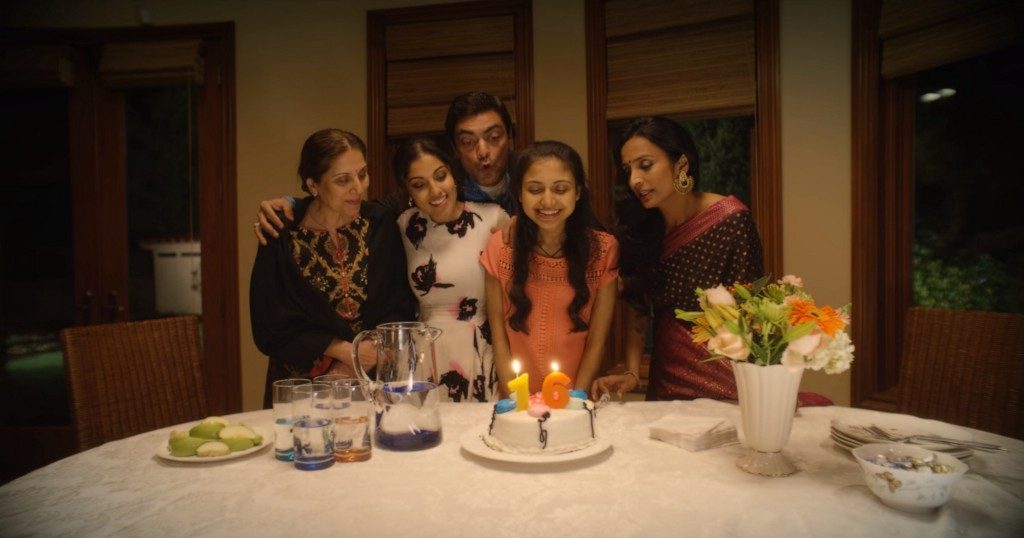Under the Radar is Women and Hollywood’s newest feature. Published monthly, the post offers a chance for us to highlight works by and/or about women that haven’t received big releases or significant coverage in the press, but are wholly worthy of attention.
To recommend a title for this feature, please e-mail womenandhollywoodinterns@gmail.com.
In writer-director Saila Kariat’s largely self-funded feature directorial debut, “The Valley,” successful Silicon Valley entrepreneur Neal Kumar (Alyy Khan) has provided his family — wife Roopa (Suchitra Pillai) and daughters Monica (Salma Khan) and Maya (Agneeta Thacker) — with everything he thinks they could ever possibly want: a lifestyle of luxury, and a good education for his children. But when younger daughter Maya dies by suicide, everything Neal thought he knew about his family is thrown into question. Convinced somebody must be to blame, Neal drives himself into an all-consuming quest to find answers.
“The Valley” concerns itself with the importance of human connection — in Neal’s work, as he unveils new technology which aims to enhance human interaction, and in how the story reveals the breakdown of relationships between family members when personal issues remain unspoken or unresolved. Kariat’s director’s statement explains further: “We live in an age where the barometers of success are money, achievement, power, or fame — family and relationships take a back seat,” she says. “Anxiety, depression, and suicide are on the rise amongst adolescents, regardless of the demographic to which they belong. The internet and social networks, which are supposed to increase our connectivity, often make teenagers feel more disconnected, and inadequate.”
Determined to highlight the struggles she had personally observed around the Bay Area’s tech industry, Kariat wrote a script that she hopes will resonate. Furthermore, as a second generation Indian American, and having witnessed the effects of the pressure parents can place upon their children, she was keen to address the stigma and shame often surrounding mental health in Asian communities, and open up the conversation around the topic, which is all too often ignored.
As it transpires in the film, Maya’s suicide was not rooted in one specific issue, but rather was inspired by a combination of factors, and the effect of her depression — and the lack of a supportive space in which to open up about it — proved to have a tragic outcome, one which Kariat is careful not to romanticize.
Focusing less on the suicide itself and how it was carried out, Kariat’s preoccupation instead lies in the unraveling of the Kumar family in the aftermath of Maya’s death, as Neal, Roopa, Monica, and housekeeper Didi (Samina Peerzada) all come to terms with the loss in their own ways, and search for some kind of resolution. Neal, who struggles to understand how his daughter could have been dissatisfied with the life of privilege he provided her, questions everybody he can find who may have interacted with her in her final few days — including Maya’s friends, fellow college students, and faculty — yet his obsession begins to expose just how fractured his own interior life, and family, is.
Praised by reviewers for its somber, mournful approach to suicide, its concise storytelling, complex characters, and strong performances — particularly from Alyy Khan and Pillai — the film has won awards at a number of smaller festivals, including Madrid International Film Festival, Portland Film Festival, and Long Island International Film Expo. Having screened in a few cities around the UK, the film has more UK cinema dates lined up — pending reservations — and is currently set for a U.S. theatrical release of June 8, per IMDb.
Upcoming screenings:
Saturday, April 28, 2018 — Vue Cardiff — Cardiff, UK
Saturday, May 12, 2018 — Odeon Leicester with Q&A — Leicester, UK







